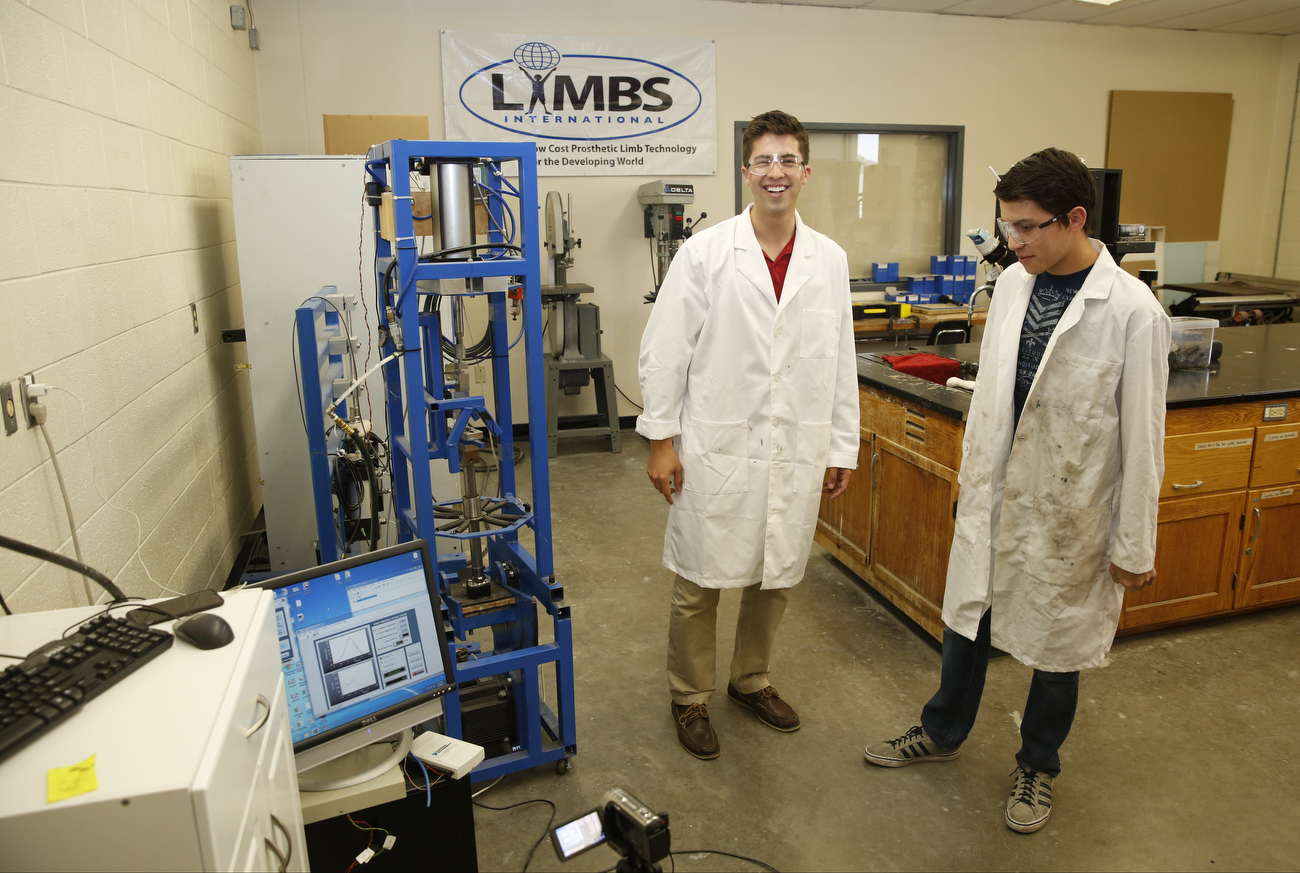By David Chavez

Growing up, Dante Chaparro Vega looked up to Batman. The third-year engineering leadership major loved the way the dark knight helped others and fought for justice with no desire for recognition.
Chaparro Vega and several other University of Texas at El Paso engineering students may not have superpowers or elaborate costumes, but they are helping hundreds of people worldwide through their design and research efforts with LIMBS International, an organization that provides low-cost, high-quality prosthetics throughout the developing world.
“The LIMBS-UTEP partnership is very important because it helps students grow as engineers and at the same time it provides LIMBS with new ideas and research projects that may have a global impact,” said Chaparro Vega.
LIMBS International works with hospitals and clinics around the world, including Bangladesh, Cambodia, Bolivia, India and Kenya.
The partner clinics fit amputees with prosthetics designed by LIMBS International. UTEP students help design different components and continuously look for new and better ways to provide prosthetic limbs while making them less expensive for patients.
The organization was started by Roger V. Gonzalez, Ph.D., professor and chair of engineering education and leadership at UTEP, while he was working at LeTourneau University.
In 2003, Gonzalez challenged his LeTourneau University students to develop a prosthetic knee made of simple materials made specifically for developing nations. The result was the LIMBS knee, the flagship product of the organization.
“Students can bring fresh perspective to problems,” Gonzalez said. “They are not constrained to tradition and can think outside the box. This experience gives them the opportunity to see how engineering design and analysis can help others directly through the development of affordable technology.”
In 2012, Gonzalez returned to UTEP, his alma mater, as a faculty member. Since then, LIMBS International has been headquartered in El Paso and has partnered with the University. The partnership has expanded LIMBS and given students the opportunity to conduct research, design their own prosthetics and help hundreds of people around the world.
There are nine UTEP students currently working on projects with LIMBS. A prosthetic child’s arm and an electronic knee are just a few of the projects these students are exploring.
According to LIMBS International, there are more than 10 million amputees in developing nations who need a prosthetic limb but cannot afford one or keep one functional once they have it.
“Millions of people in extreme poverty suffer amputations and the majority of the prosthetic devices are excessively expensive,” said Chaparro Vega. “For example, the price for leg prostheses in the U.S. ranges from $5,000 to $40,000.”
While the technology created by LIMBS has impacted hundreds of amputees across the world, Gonzalez stresses that more must be done outside of technology.
“Technology is deceptive by making us think that it can solve the entire problem,” Gonzalez said. “The reality is that more than technology is needed. Thus, we are working alongside local community groups where amputees live to help restore amputees to a level of physical and emotional health needed for them to be reintegrate back into society.”
In order to broaden their reach and be able to create new innovations, LIMBS is holding its third annual LIMBS Summit at UTEP June 5, 2015. The event helps students from various domestic and international universities collaborate and discuss how technology can help the millions of poverty-stricken amputees in the world.
Gonzalez continues to head LIMBS and is honored UTEP and its students continue to support the organization.
“As a UTEP alumnus, it is great to see LIMBS and UTEP work together to make a difference in the world,” he said.
Chaparro Vega hopes to continue his work with LIMBS while he is at UTEP. He plans to go to graduate school and then start his own biomedical company to offer high-quality prostheses and medical products to underserved communities.
“Disability in underserved populations is a topic that concerns us all,” he said.